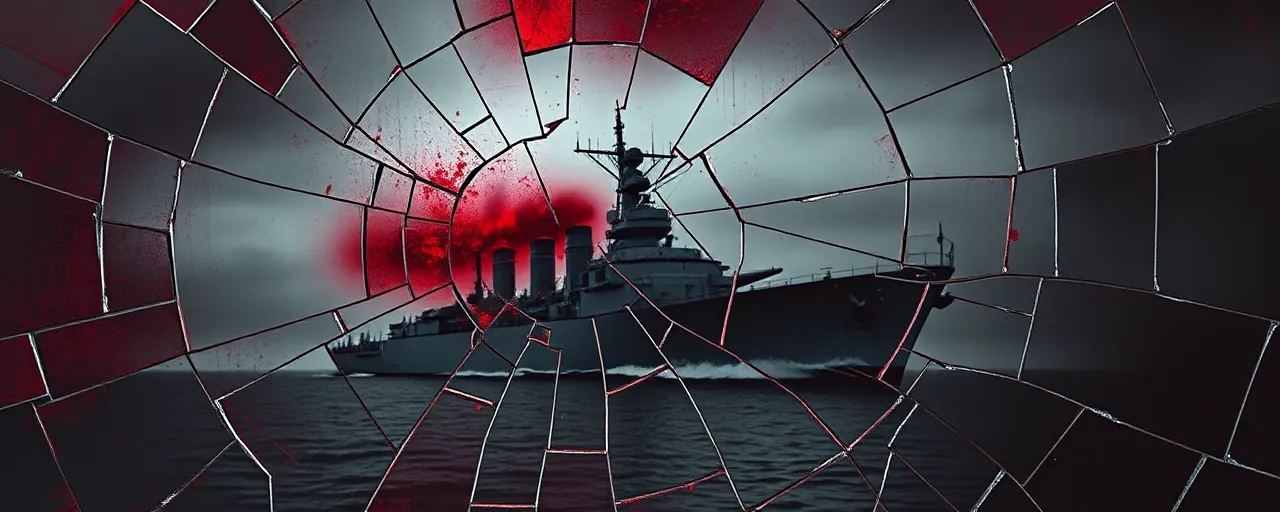A Sudden Move With Global Echoes
On April 9, 2025, the Department of Defense announced a decision that sent shockwaves through the halls of NATO and beyond. Vice Admiral Shoshana Chatfield, the U.S. representative to NATO’s military committee, was abruptly removed from her post by Defense Secretary Pete Hegseth. The stated reason? A vague 'loss of confidence' in her ability to lead. For those who value America’s role as a steadfast partner in global security, this move landed like a gut punch, exposing a troubling trend of political loyalty trumping competence in our armed forces.
Chatfield’s dismissal isn’t just a personnel shuffle; it’s a signal flare illuminating the fragility of international alliances under the current administration. With Russia pressing its advantage in Ukraine and China flexing its muscles on the world stage, NATO needs unity and trust more than ever. Yet here we are, watching a seasoned officer, with decades of service, cast aside in a way that leaves allies scratching their heads and adversaries smirking. The timing couldn’t be worse, and the implications couldn’t be clearer.
This isn’t about one admiral’s career. It’s about what her firing represents: a military increasingly bent to the whims of an administration that prizes allegiance over expertise. For everyday Americans who rely on our leaders to keep us safe, not just from foreign threats but from the chaos of unchecked power, this moment demands attention. It’s a story of loyalty tests gone wrong, and it’s unfolding right now.
The Cost of Loyalty Over Merit
Let’s peel this back a bit. The Defense Department’s announcement was curt, almost dismissive, thanking Chatfield for her service while offering no real explanation. Behind the scenes, whispers of 'SignalGate'—those unaccountable backchannels for sensitive decisions—suggest a process shrouded in secrecy. Senator Tammy Duckworth, a veteran herself, has been vocal about the need for transparency, arguing that decisions like these must prioritize national security, not political agendas. She’s right. When leadership roles become pawns in a game of loyalty, we all lose.
History backs her up. Look at General George C. Marshall during World War II. He didn’t hesitate to axe underperformers, but his 'plucking boards' were about competence, not ideology. Contrast that with today, where high-profile dismissals—like Chatfield’s—carry the stench of partisan purges. President Truman fired General MacArthur in 1951 for insubordination, a move rooted in principle, not politics. Today’s actions feel different, more like a loyalty litmus test than a defense of democratic norms.
And what about the fallout? The Pentagon’s pushing a 'strategic reduction' of 50,000 to 60,000 civilian jobs, a plan sold as boosting readiness but criticized for gutting institutional knowledge. Chatfield’s exit fits this pattern of upheaval, where experience is sacrificed on the altar of alignment with the administration’s vision. For NATO allies already rattled by tariffs and offhand remarks questioning the alliance’s worth, this is another reason to doubt America’s reliability. It’s a self-inflicted wound we can’t afford.
Some might argue this is just tough leadership, a necessary shake-up to keep the military lean and focused. They’d point to Hegseth’s mandate to cut fat and sharpen lethality. But that argument collapses under scrutiny. A military stripped of seasoned leaders and mired in political games isn’t lean—it’s brittle. Readiness doesn’t come from chaos; it comes from trust, something we’re hemorrhaging fast.
The stakes are tangible. Families across the country depend on a military that can respond to crises, not one distracted by internal purges. Allies in Europe, facing Russia’s aggression, need a partner they can count on, not one that fires key players without warning. This isn’t about abstract principles; it’s about real-world consequences hitting us now.
A Fragile Alliance at Risk
NATO’s military committee isn’t some bureaucratic footnote. Since 1949, it’s been the backbone of collective defense, and the U.S. voice there—Chatfield’s voice—matters. From Omar Bradley shaping Cold War strategy to today’s fights over cyber threats, America’s role has been to lead, not destabilize. Her firing leaves a vacuum, and the lack of clear communication only deepens the unease. Allies aren’t just confused; they’re worried.
Look at the broader picture. The administration’s antagonism—tariffs on trading partners, dismissive rhetoric about NATO’s relevance—has already strained ties. Chatfield’s removal adds fuel to that fire. At a time when Russia’s pushing into Ukraine and China’s eyeing global dominance, unity is our strength. Undermining it with impulsive decisions hands our adversaries an edge they don’t deserve.
Past leaders knew this. Kennedy’s steady hand during the Cuban Missile Crisis, Gorbachev’s openness that thawed the Cold War—these were moments when leadership built bridges, not walls. Today’s approach feels more like a wrecking ball, swinging wildly at structures we’ve spent decades reinforcing. For anyone who cares about a stable world, that’s a terrifying shift.
Time to Demand Better
Here’s where we stand: a military leadership tangled in politics, an alliance teetering on mistrust, and a nation left wondering if our security’s being gambled away. Chatfield’s dismissal isn’t an isolated blip; it’s a symptom of a deeper rot. We deserve a Defense Department that values merit over loyalty, that strengthens alliances instead of fraying them. This isn’t a partisan plea—it’s a call for sanity.
The path forward demands accountability. Congress needs to step up, as Duckworth and others have urged, with oversight that ensures our military serves the public, not a narrow agenda. For everyday people, it’s about recognizing what’s at stake: a world where America leads with strength and principle, not one where we stumble through self-made crises. Chatfield’s firing is a warning. Let’s heed it before the damage spreads.
